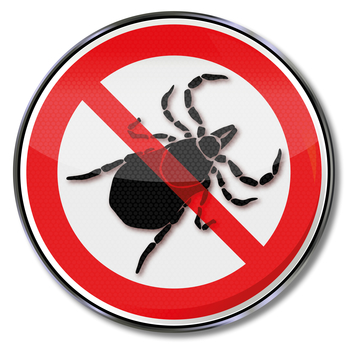Tick-Related Tragedy Could Turn Into Triumph For Potomac, MD Residents
- Esther M.
- Feb-05-2020
- Montgomery
One might say that Potomac, MD has it all. You can dive into nature at Potomac Paddlesports, get inspired by a trip to Glenstone Museum, and then indulge in a meal made from local pure ingredients at Founding Farmers in Potomac. And soon, residents of Potomac may not have to worry about missing out on these activities due to tick-borne diseases.

That’s because later this month, President Trump is expected to sign into law an appropriations bill that includes the Kay Hagan Tick Act. This assigns a portion of 20 million dollars toward tick-borne (and other vector-borne) disease research, treatments, diagnostics and vaccines.
Who is Kay Hagan and why is this Tick Act named after her? Senator Kay Hagan is a former United States senator from North Carolina who died about 2 months ago from encephalitis. This brain swelling didn’t happen due to head trauma as you’d expect, but due to a virus transmitted by the tiny but toxic tick.
Former U.S. Sen. Kay Hagan died Monday at age 66 — nearly three years after she was first hospitalized with what doctors later said was encephalitis.
The cause? Powassan virus, a relatively rare tick-borne disease.
Encephalitis is an inflammation of the brain often caused by an infection like the Powassan virus, according to the Mayo Clinic.
The recovery process for viral encephalitis varies by case with differing impacts on the brain, speech, vision, memory and muscle control, the Raleigh News & Observer reported, citing the University of Maryland Medical Center. Read more at Charlotte Observer…

It’s truly saddening that complications from a tick bite that happened at least three years ago ended up taking Senator Hagan away from her family, friends and the nation as a whole. Condolences from President Obama and former VP and 2020 presidential hopeful Joe Biden confirm the major role Senator Hagan played serving her community and country. And now with the Kay Hagan Tick Act on its way to being implemented, she’ll continue to play a role in improving the health of Americans in the area of tick-borne diseases.
Other than being a “relatively rare tick-borne disease” what else is there to know about the Powassan virus?
Powassan virus is spread to people by the bite of an infected tick. Ticks become infected when they feed on groundhogs, squirrels, mice, or other rodents that have the virus in their blood. Infected ticks can then spread Powassan virus to people and other animals by biting them. People do not develop high enough levels of the virus in their blood to infect biting ticks. As a result, people are considered “dead-end” hosts for Powassan virus. Read more from CDC…
Talk about a one-way street! We can get infected from ticks but can’t infect ticks ourselves. While this may seem like another one of the injustices of the world, it’s probably more of a self-protecting mechanism our bodies have developed.

As we wait patiently for Fiscal Year 2020 when funds should be made available towards the Kay Hagan Tick Act, it’s important to do what we can to avoid getting infected. At this point in time, there are no drugs to treat or vaccines to prevent this disease. So your best course of action is to avoid ticks or getting bitten by them.
When you’re walking through an area with heavier brush, take extra precautions: Tuck your pants legs into your socks, so the tick can’t get to your skin. And if you know you’re in a tick-infested area, wear clothing — especially shoes, socks, and pants — treated with permethrin, which repels and kills ticks. Insect repellents containing DEET, which you put on your skin, add more protection, but DEET alone is nowhere near as effective as permethrin. Once you get home, check your body for ticks: under your arms, in and around your ears, inside your bellybutton, behind your knees, between your legs, around your waist, and on your hairline and scalp. Read more from Web MD…
It’s also recommended to walk in the center of trails if in the great outdoors. Also, shower once you come back inside to wash off any ticks. This also allows you to check for any blood-suckers that may have attached themselves to you.

It’s encouraging to see sad situations give rise to optimistic opportunities that’ll benefit not only residents of Potomac, MD but also the country as a whole. For safe yet effective tick control solutions, call Backyard Bug Patrol today.
Related posts:
- The Lone Star Tick is Travelling Up North, Affecting Residents Of Olney, MD
- How To Locate And Deal With Ticks In Your Clarksburg, MD Home
- Possible Challenges To Effective Lyme Disease Treatment In Dickerson, MD
- How Changes In Lyme Disease Guidelines May Affect Kids In Bethesda, MD
- Should You Worry About The Asexual Asian Longhorned Tick If You Live In Gaithersburg, MD?
